MOVIE REVIEW – Another video game adaptation fails to break its own boundaries. But is it just another miss in the series, or a piece that delves deeper into the relationship between the movie and game industries?
In this day and age, the “video game movie” genre is as vast and varied as the “superhero movie” genre. But should movies like “Super Mario Bros. Movie,” “Detective Pikachu,” “Resident Evil: Welcome to Raccoon City,” and “Uncharted” really be lumped together? Do you remember Resident Evil: Welcome to Raccoon City or Uncharted? Similarly, the perceived curse associated with video game adaptations these days seems less about studio failure and more about the inherent communication gap between games and movies. It’s as if we’re tying both hands behind our backs, or in this case, stepping onto the Le Mans track with only PlayStation game experiences.
“Gran Turismo is a perfect example of why we need a fresh approach to these movies. Neill Blomkamp’s latest isn’t the worst video game movie – in fact, it’s not even the worst Blomkamp movie. But it does serve as a stark cautionary tale for anyone who still harbors the illusion of conquering the genre. Rarely has a movie so vividly demonstrated the gaping chasm between source material and functional storytelling.
A video game adaptation in sports biography clothing
The real-life “Gran Turismo” is less a direct adaptation of the video game series of the same name than it is a sports biography… and unfortunately, it has received a mixed reception. The plot follows Nissan’s bold (and, frankly, risky) gambit to make a splash on the race track (yes, this really happened). Enter Orlando Bloom’s character, cocky and occasionally morally gray marketing chief Danny Moore. Moore is on a mission to turn the world’s best Gran Turismo players into elite racers. Jason Hall and Zach Baylin’s underwhelming screenplay touches lightly on why, hoping viewers won’t ask too many questions. Partnering with Moore in this endeavor is Jack Salter, a former top racer played with commitment by David Harbour, who trains the next generation of talent.
But the real challenge? Our protagonist, Jann Mardenborough, played by “Midsommar” star Archie Madekwe, who struggles to carve a real character out of clichés, starts out on the back foot. Every attempt to cast him in a typical underdog story feels forced. Jann, a British youth who rejects his parents’ advice to pursue a stable career, chases his racing dreams. With a thousand hours of “Gran Turismo” gameplay and chats on the PlayStation Network, he seems oddly suited to Danny’s audacious scheme. Complications arise when things seem too easy for him and the other rookies at GT Academy. The training scenes, mostly presented in relaxed montages under Salter’s watchful eye, rob the film’s early stages of dynamic tension and suspense.
Engine trouble under the hood
The inherent absurdity of the premise and Jann’s rapid ascent to the epicenter of racing don’t fully account for the movie’s narrative disjointedness. Visually, the consistently flat and drab lighting combined with lackluster, straight-on camera angles early on does “Gran Turismo” no favors. Early race sequences look like discarded footage from the early seasons of BBC’s “Top Gear.” But the real problems arise in the actual race sequences, which unfortunately get less screen time than expected in this 135-minute crawl.
The movie’s constant homage to the gaming experience undermines any atmospheric or aesthetic goals Blomkamp and cinematographer Jacques Jouffret may have set. This isn’t in the league of Ford vs. Ferrari. Who would have thought that rigid third-person camera angles following Jann’s race car, excessive drone shots, and game-like icons indicating car positions would suck the life and energy out of racing sequences? As the film tries to tug at emotions, beckoning celebration or dread, “Gran Turismo” and its disjointed editing are reminiscent of watching friends play video games in the pre-Xbox Live or PlayStation Network era, waiting for your turn.
The highlights play out in the background
Gran Turismo’s most compelling moments take place not on the track, but in the background. A compelling subplot brews between Bloom’s marketing-obsessed Danny and Harbour’s more pragmatic Jack, mirroring the dynamic between a studio executive and a director constrained by the limitations of big-budget filmmaking. But this subplot is abandoned as quickly as it’s introduced. Djimon Hounsou, who always shines in franchise films, again exceeds expectations in his limited role as Jann’s disapproving and overprotective father. And maybe it’s just me, but the movie’s occasionally convincing final act makes your pulse race, even if it’s too little to compensate for the sluggish middle section.
If you want to experience what it’s like to be behind the wheel of a turbocharged racecar, then – if you have a PS5 – consider playing an entry in the original Gran Turismo series, such as Gran Turismo 7, which you can read our review of here. However, if you’re hoping for a movie to deliver the same sensation, one that truly understands and takes advantage of the cinematic medium, then you might want to watch (or re-watch) ‘Ford vs: Maverick’ or any other quality movie with a similar theme.
-BadSector-
Gran Turismo
Direction - 6.2
Actors - 6.4
Story - 4.5
Visuals - 7.5
Ambience - 6.4
6.2
FAIR
Gran Turismo, Neill Blomkamp's latest film, tries hard to merge the worlds of video games and movies, but it doesn't always succeed. The story follows a real-life challenge in which Nissan attempts to turn the best Gran Turismo players into professional racers, but the plot is cliché-ridden and often feels drawn out. While there are standout moments and visually appealing scenes, the movie fails to fully capture the excitement of both video games and real-world racing.

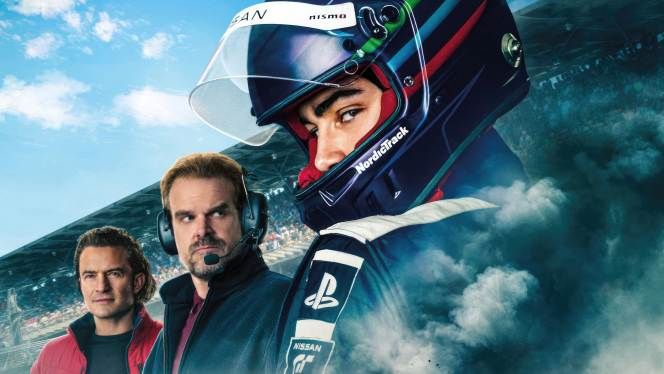
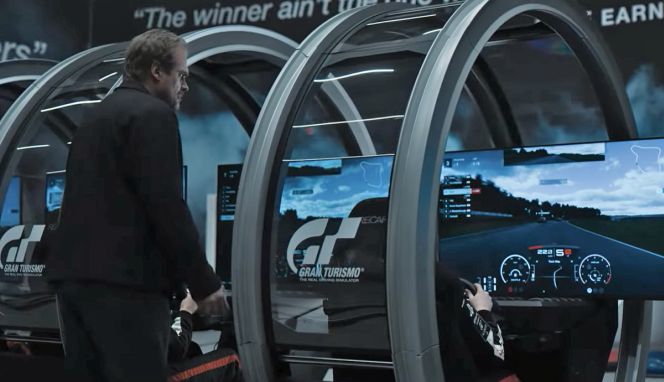
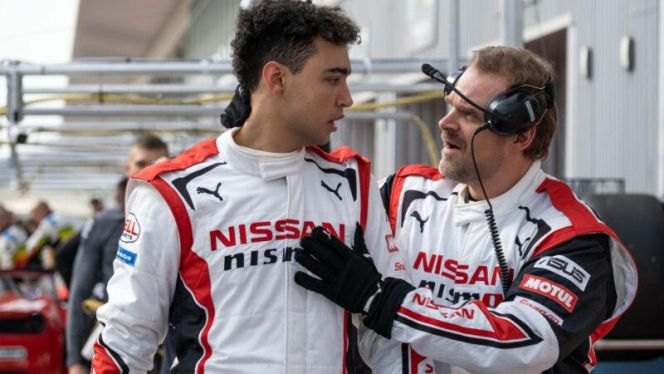

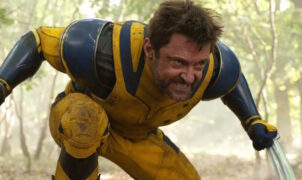
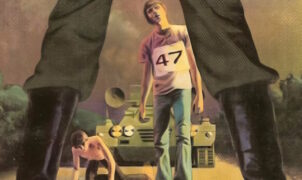






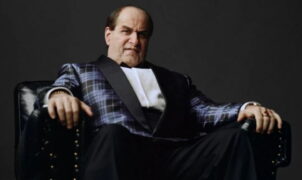




Leave a Reply